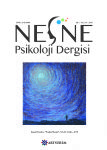Gruplar Arası Olumlu ve Olumsuz Temas: Türk ve Suriyeli İlkokul Öğrencilerinin Sınıf İçi Etkileşimlerinin İncelenmesi
Positive and Negative Intergroup Contact: An Investigation of Classroom Interactions between Turkish and Syrian Primary School Students
Author(s): Fulya Türk, Abbas Türnüklü, Mustafa Tercan, Tarkan KaçmazSubject(s): Education, Psychology, School education, Educational Psychology, Social psychology and group interaction, Migration Studies, Ethnic Minorities Studies
Published by: Sanat ve Dil Araştırmaları Enstitüsü
Keywords: intergroup relationships; intergroup contact; crossgroup friendships; immigration;
Summary/Abstract: The aim of this study is to examine the positive and negative intergroup contact experiences between Turkish and Syrian students in the same class. The research was designed as a qualitative study. Semistructured interview technique was used in the study. The study group consisted of 40 (Female: 32, %80; Male:8, %20) school psychological counselors. The verbal data collected by face-to-face interviews were analyzed using qualitative data analysis technique. As a result of the research, it was determined that Turkish and Syrian students helped each other depending on the positive intergroup contact. In terms of providing emotional support, the common language has become an important factor. A pattern was found between the effective use of common language, increased intergroup friendship, mutual emotional support, and helping behaviors. It was determined that Syrian students were more willing to accept Turkish students. When focusing on negative intergroup contact, meaningful results were found regarding the situation of Turkish and Syrian students disturbing each other. It is revealed that the Syrian students who do not use Turkish effectively turn to more disturbing behaviors and these students are more excluded. In particular, it was found that the intergroup prejudice was reduced and the insulting behaviors were less common in the classroom environment as the intergroup harmony and cohesion increased.
Journal: Nesne-Psikoloji Dergisi
- Issue Year: 7/2019
- Issue No: 15
- Page Range: 214-235
- Page Count: 22
- Language: Turkish

